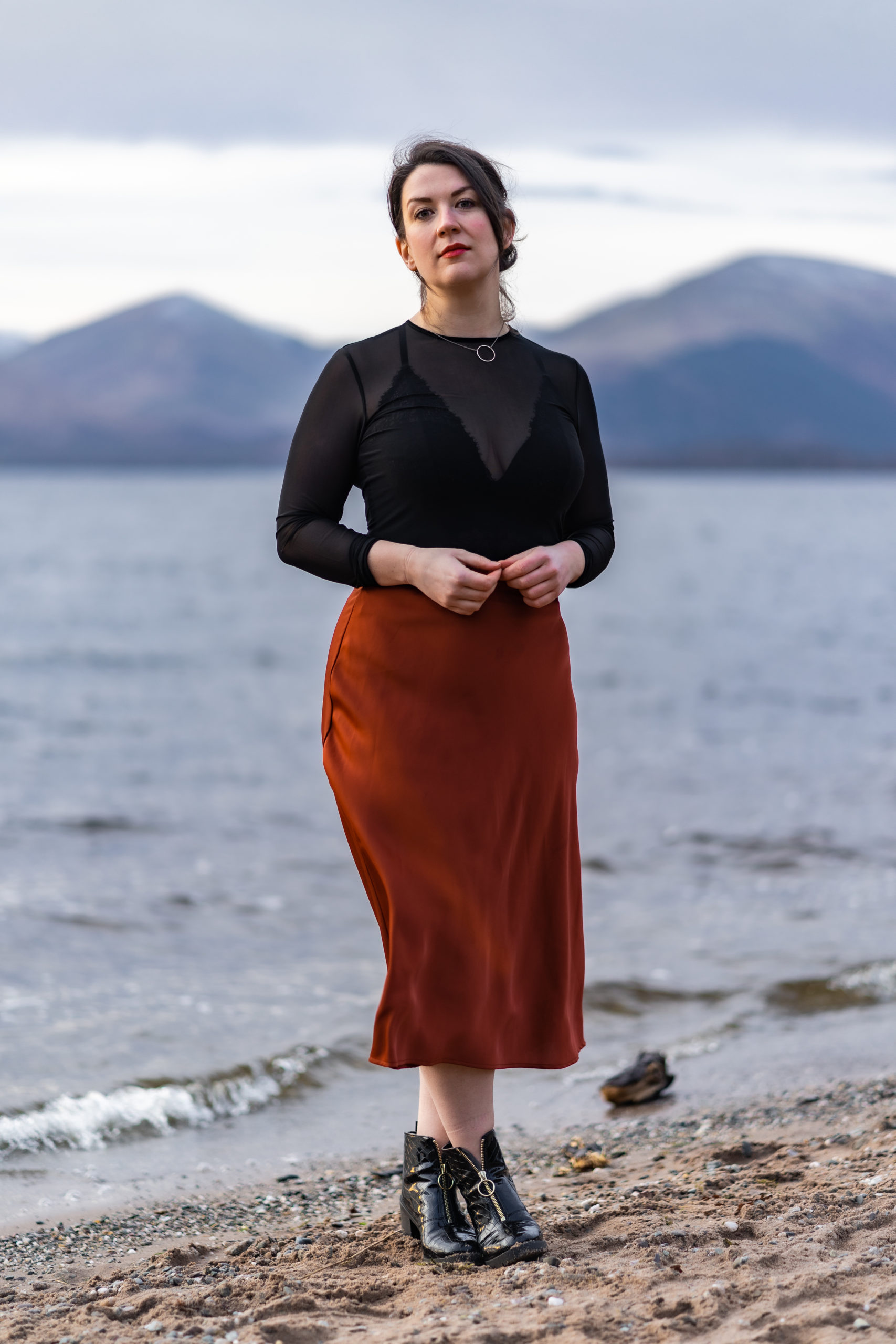URRANTA [Scottish Gaelic. adj. bold, daring, intrepid.]
I’ve always been interested in words: definition, syntax, vocabulary; how they appear in different languages; how they come and go in trends; how we use them to communicate, persuade and empathise effectively.
I’ve always been curious about people’s stories: pivotal moments, chance encounters, loves and losses and defining moments. Our stories are our paths, entwining us with others and shaping who we are.
I’ve always been fascinated by songs: glimpses into a past life through work songs, outpourings of emotion in verses of unrequited love, unwavering belief in- and cautious regard for the Otherworld, and the fighting spirit of those facing political injustice.
Nowhere are these elements combined as in the traditional Gaelic songs of Scotland. To me, growing up, getting lost in the story of traditional songs was a more exciting version of ‘getting lost in books’. They were from the area that surrounded me on Skye; my mum would point out Beinn Eadarra, where ‘Colann Gun Cheann’ (Headless Body) was originally from. According to tradition, she was beheaded for gleaning in the fields in Morar. Although dead, she was not at peace and would float above the mountains, hurling her severed head at- and terrorising passers-by.
Or that ‘Fear a’ Choire’, a deeply unpopular man and local landlord had a clay effigy made of him that resulted in the last witch trial that took place on Skye (1700s). He lived in ‘the big house’ in Corry, which sits beneath Beinn na Caillich, visible across the bay from my home.
I could revel in the feuds between the MacLeods and MacDonalds, relishing all their gory detail, particularly the instance where the MacDonald chief had married the sister of Ruairidh Mòr MacLeod. A year and a day after the handfast she had not borne him an heir and, furthermore, had lost sight in one eye. MacDonald, having no further use for her, returned her on a one-eyed horse, led by a one-eyed servant and followed by a one-eyed mongrel. The ensuing fallout resulted in several conflicts that devastated families across Skye, Harris and Uist, culminating in the battle of Coire na Creiche in 1601.
After recording the songs for URRANTA, I took a moment to reflect on my selection. It struck me that most of them too had a powerful story behind them – war, political struggle, female empowerment and heartbreak – and that, although the stories told are local, the themes explored are universally felt.
I began to view the songs on a new level; where I had once enjoyed the stories as captivating and expressive, I didn’t always connect the story to the author: a real life person.
To have composed the songs in the first place, these individuals must have been experiencing exceptional hardship. The songs were a critical outlet of expression that might not have otherwise been afforded to them. This is particularly pertinent in those songs that deal with sexual assault and female empowerment.
The advances we have made as a society and as a traditional music community recently – to embrace the importance of feminism, for example, and to empower the LGBTQ+ rights – represent decades of struggle and strife, perseverance and pride.
The composers of the songs on URRANTA experienced similar heartaches and hardships, fighting to have their voices heard in a socio-political climate that was neither open nor accepting. Yet still their voices rang out loudly, echoing out across the years as a remarkable testament to the power and history of our traditions; this is truly the definition of URRANTA.
The process of researching, selecting, recording and sharing these songs has been exceptionally humbling, and has nourished my huge respect for all of the composers who were daring enough to confide their story in someone through song. The way those stories have moved through time, linking generations, fills me with pride. I am deeply grateful and honoured to be singing in a language that is so closely connected to history and place. These songs have become more than words – definition, syntax, vocabulary – wrapped around a rhyming scheme. They have become more, even, than fascinating stories. These songs are the legacy of our ancestors, and it is imperative that we all play a small part in this evolving ecosystem of tradition as we carry their voices forward.
Dùrachdan | Best Wishes,
Deirdre x
Deirdre’s debut album URRANTA is available now: www.deirdregraham.com






